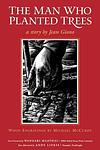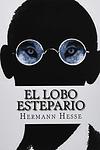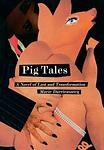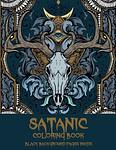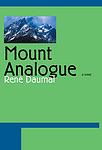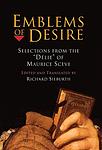The Greatest German, French "Allegorical" Books of All Time
Click to learn how this list is calculated.
This list represents a comprehensive and trusted collection of the greatest books. Developed through a specialized algorithm, it brings together 305 'best of' book lists to form a definitive guide to the world's most acclaimed books. For those interested in how these books are chosen, additional details can be found on the rankings page.
Genres
Allegorical books are a genre of literature that use symbolic characters, events, and settings to convey a deeper meaning or message. These stories often have a moral or philosophical lesson that is meant to be interpreted by the reader. Allegories can be found in many different types of literature, including novels, short stories, and poetry. They are a powerful tool for exploring complex ideas and emotions, and can be used to comment on social, political, or religious issues. Overall, allegorical books are a thought-provoking and engaging genre that challenges readers to think critically and reflect on the world around them.
Countries
Date Range
Reading Statistics
Click the button below to see how many of these books you've read!
Download
If you're interested in downloading this list as a CSV file for use in a spreadsheet application, you can easily do so by clicking the button below. Please note that to ensure a manageable file size and faster download, the CSV will include details for only the first 500 books.
Download-
26. Le Pauvre Christ De Bomba by Mongo Beti
"Le Pauvre Christ De Bomba" is a satirical novel set in colonial Cameroon, highlighting the cultural clash between the indigenous people and the French colonizers. The story follows the life of a young boy named Christophe, who is sent to a Catholic mission school and becomes the subject of ridicule due to his poverty and African heritage. Through Christophe's experiences, the author exposes the hypocrisy and injustices of the colonial system, shedding light on the destructive effects of colonization on African society.
The 3791st Greatest Book of All Time -
27. La Vie Et Demie by Sony Labou Tansi
"La Vie Et Demie" is a thought-provoking novel set in an unnamed African country, where an oppressive regime has seized power and implemented a bizarre policy of dividing its citizens into "halves" and "wholes." The story follows the life of a young girl named Sophie, who is born as a "half" and faces discrimination and hardship due to her status. Through Sophie's experiences, the author explores themes of identity, inequality, and the dehumanizing effects of totalitarianism, offering a powerful critique of social and political systems.
The 4444th Greatest Book of All Time -
28. The Man Who Planted Trees by Jean Giono
The book tells the inspiring tale of a solitary shepherd who, through his unwavering commitment to reforest a desolate valley in the foothills of the Alps in Provence throughout the first half of the 20th century, transforms the landscape and, in turn, the lives of the people who come to inhabit the region. With great patience and persistence, he plants one hundred acorns a day for over thirty years, ultimately creating a lush forest that revitalizes the land and offers a powerful testament to the impact one person's efforts can have on the world around them.
The 4643rd Greatest Book of All Time -
29. El Lobo Estepario by Hermann Hesse
The novel explores the profound loneliness and existential despair of a middle-aged man who feels alienated from bourgeois society. Struggling with a dual nature of being both man and wolf, he embarks on a journey of self-discovery that leads him through surreal experiences and encounters with various characters who challenge his perspectives on life, love, and spirituality. Through these experiences, he confronts his own psyche and the complexities of human existence, ultimately seeking a path to spiritual enlightenment and personal transformation.
The 4681st Greatest Book of All Time -
30. Heartsnatcher by Boris Vian
The novel is a surreal and satirical tale set in a bizarre town where the eccentric inhabitants live under the oppressive rule of a despotic and whimsical figure. The narrative follows the lives of the townspeople, who are subjected to absurd and often cruel whims that challenge their sanity and morality. As the story unfolds, the characters confront the absurdity of existence, the nature of love and desire, and the struggle for individual freedom against authoritarian control. The book combines elements of fantasy, dark humor, and existential philosophy, creating a unique and thought-provoking exploration of human nature and society.
The 5210th Greatest Book of All Time -
31. The Blue Flowers by Raymond Queneau
The novel is a playful and complex narrative that intertwines the stories of two characters living centuries apart: the medieval Duke of Auge as he goes on various adventures, and a modern-day Frenchman named Cidrolin who spends his days idly lounging on a barge moored on the Seine. The narrative switches back and forth between the two timelines with each chapter, employing a variety of literary styles and linguistic puns. The book is known for its experimental use of language, its humorous take on historical and contemporary life, and its exploration of themes such as time, identity, and the cyclical nature of existence.
The 5266th Greatest Book of All Time -
32. Pig Tales by Marie Darrieussecq
This novel is a satirical and dystopian narrative that follows the life of a woman who gradually transforms into a pig. Through her metamorphosis, the story delves into themes of identity, societal decay, and the objectification of women. Set against a backdrop of a corrupt and perverse society, the protagonist's journey from human to pig serves as a critical commentary on the dehumanizing aspects of contemporary life and the commodification of bodies. The narrative's dark humor and surreal elements underscore the absurdity of the protagonist's changing reality, offering a poignant critique of modern societal norms and the loss of personal agency within oppressive systems.
The 6236th Greatest Book of All Time -
33. The Lesson by Eugène Ionesco
"The Lesson" is a darkly comedic one-act play that explores themes of power, absurdity, and education. It revolves around a Professor who tutors a young, enthusiastic Pupil in preparation for a totalizing examination. As the lesson progresses, the initially benign academic session descends into a surreal and oppressive ordeal. The Professor's pedantic instruction becomes increasingly authoritarian and nonsensical, leading to a climax that exposes the dangers of indoctrination and the grotesque potential of authority figures to abuse their power. The play is a poignant critique of totalitarian systems and the absurdities inherent in dogmatic approaches to knowledge and learning.
The 7168th Greatest Book of All Time -
34. Amédée by Eugène Ionesco
The play revolves around the bizarre situation of a couple living with the growing corpse of the husband's friend, Amédée, in their apartment. As the body inexplicably continues to expand, it causes increasing inconvenience and absurdity in their lives. The husband, a failed playwright, and his wife struggle with their mundane existence, their inability to dispose of the corpse, and the surreal events that unfold. The narrative explores themes of stagnation, guilt, and the absurdity of life, as the couple's surreal predicament serves as a metaphor for the inescapable, often grotesque, complexities of the human condition.
The 7168th Greatest Book of All Time -
35. The Baphomet by Pierre Klossowski
"The Baphomet" is a philosophical novel that delves into the esoteric and mystical aspects of the Knights Templar, exploring themes of transgression, heresy, and the nature of divine presence. The narrative is structured around a series of ritualistic encounters and dialogues among the Templars, who have achieved a form of immortality. The characters engage in complex discussions on the dissolution of individual identity, the fluidity of gender, and the quest for spiritual transcendence. The book blends historical elements with surreal and symbolic imagery, challenging the reader to consider the boundaries of desire, knowledge, and the sacred.
The 7168th Greatest Book of All Time -
36. The Chimeras by Gérard de Nerval
"The Chimeras" is a collection of sonnets that delves into the realms of mythology, history, and personal introspection, weaving a tapestry of allegorical and symbolic imagery. The work reflects the author's fascination with the occult, the dreamlike, and the struggle between idealism and reality. Through the use of classical references and a deeply personal voice, the poems explore themes of love, despair, and the search for transcendence, offering a poignant look at the human condition and the poet's own troubled psyche. The sonnets stand as a testament to the author's lyrical prowess and his ability to find beauty amidst the shadows of his own mental turmoil.
The 7168th Greatest Book of All Time -
37. Shadow Lands by Johannes Bobrowski
"Shadow Lands" is a poignant exploration of the historical and cultural landscape of Eastern Europe, delving into the complex relationships between the German minority and the Slavic peoples during the interwar period. The narrative weaves together themes of memory, loss, and the inexorable passage of time, as it reflects on the impact of war, displacement, and the search for identity amidst the shifting borders and political turmoil of the 20th century. Through lyrical prose and rich characterization, the novel paints a vivid portrait of a region haunted by its past, grappling with the ghosts of its diverse ethnic heritage and the scars left by conflict.
The 7168th Greatest Book of All Time -
38. Hymns To The Night by Novalis
"Hymns to the Night" is a collection of six prose hymns that delve into the profound depths of night as a metaphor for the mystical and the transcendent. The work reflects on the dichotomy between darkness and light, with the night representing a sanctuary from the rationality and order of the day. It is a deeply romantic text that celebrates the beauty and solace found in the nocturnal realm, where the spiritual and the eternal are felt more acutely. The hymns are a blend of personal longing, philosophical contemplation, and spiritual quest, expressing a yearning for the infinite and the reunion with a lost beloved, symbolizing the soul's journey towards oneness with the divine.
The 7168th Greatest Book of All Time -
39. Mount Analogue by René Daumal
The book is a novel that combines surreal adventure with philosophical inquiry, telling the story of an expedition to a mysterious, inaccessible mountain that represents a spiritual quest. The mountain, which connects Earth to Heaven, can only be perceived by those who have refined their inner vision. The narrative follows the explorers as they embark on their journey, facing various challenges and revelations that mirror the inner landscapes of human consciousness and the pursuit of enlightenment. As the climbers ascend, the novel delves into themes of reality, symbolism, and the pursuit of the absolute, ultimately leaving the reader with a contemplation of the unattainable peak of human knowledge and experience.
The 7168th Greatest Book of All Time -
40. Aurelia by Gérard de Nerval
"Aurelia" is a semi-autobiographical narrative blending reality with dreamlike visions, where the protagonist embarks on a profound and surreal journey through his psyche following a descent into madness. The work is a poignant exploration of the author's own experiences with mental illness, unrequited love, and existential anguish. It delves into themes of the supernatural, the occult, and the interplay between dreams and waking life, as the narrator seeks to reconcile his internal turmoil and find a deeper understanding of his soul and the universe. The narrative is rich with symbolic imagery and introspective passages that reflect the author's fascination with the mystical and his quest for spiritual transcendence.
The 7168th Greatest Book of All Time -
41. Délie by Maurice Scève
This 16th-century collection of 449 interconnected poems, known as blasons, is a seminal work of French Renaissance literature that explores the theme of courtly love through the adoration of an idealized woman, referred to as Délie. The poems are dense with allegorical and Neoplatonic imagery, reflecting the intellectual and artistic currents of the time. The work is structured around the use of emblems, each consisting of a motto, an emblematic image, and an accompanying poem, which together weave a tapestry of emotional and philosophical reflections on love, beauty, suffering, and the quest for spiritual and intellectual fulfillment.
The 7168th Greatest Book of All Time -
42. Lutrin by Nicolas Boileau-Despréaux
"Lutrin" is a mock-heroic poem that satirizes the petty squabbles and absurdities of 17th-century French society through the lens of a seemingly trivial conflict within a church. The narrative humorously details the dispute over the placement of a lectern between two factions of church officials, elevating the triviality of their concerns to epic proportions. The poem employs wit and classical references to parody the grandiose style of epic poetry, using its clever verse to critique the pretensions and vanities of the author's contemporaries, while also reflecting on the human tendency towards discord over inconsequential matters.
The 7168th Greatest Book of All Time -
43. The Flounder by Günter Grass
The book is a rich tapestry of historical fiction and magical realism, weaving together the lives of a talking fish, a series of women cooks, and the men in their lives over several centuries. It explores themes of feminism, power, and the evolution of culinary arts, with the titular flounder serving as a guide and witness to the unfolding human drama. The narrative spans from the Stone Age to the modern era, reflecting on the changing roles and relationships between men and women, as well as the impact of these dynamics on culture and society. The novel is a blend of myth, satire, and allegory, presenting a unique perspective on the history of humanity through the lens of food and gender politics.
The 7878th Greatest Book of All Time
Reading Statistics
Click the button below to see how many of these books you've read!
Download
If you're interested in downloading this list as a CSV file for use in a spreadsheet application, you can easily do so by clicking the button below. Please note that to ensure a manageable file size and faster download, the CSV will include details for only the first 500 books.
Download
